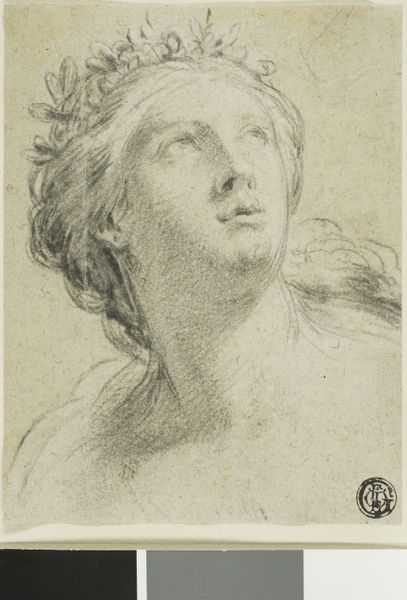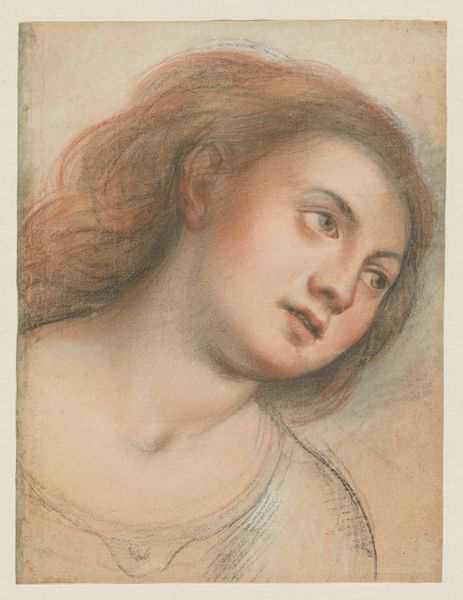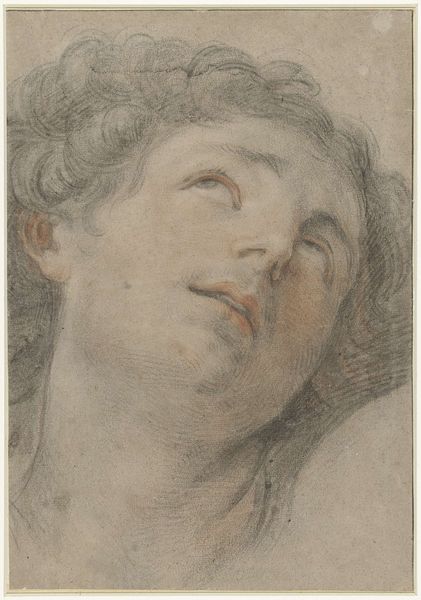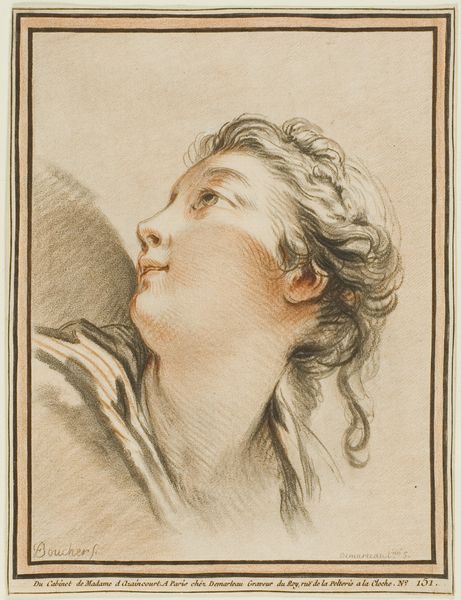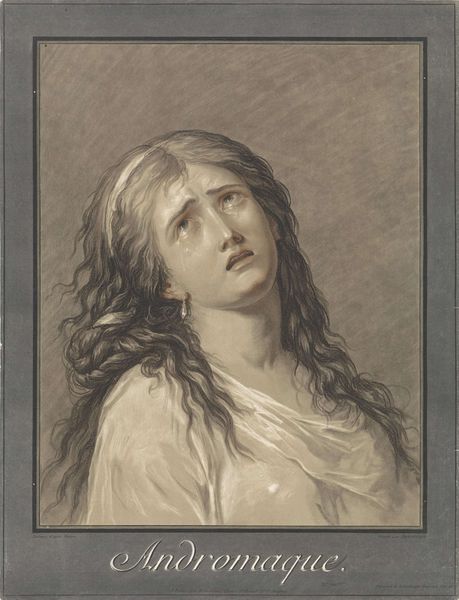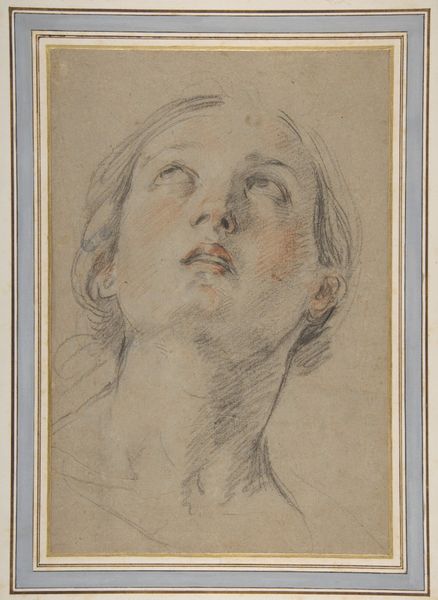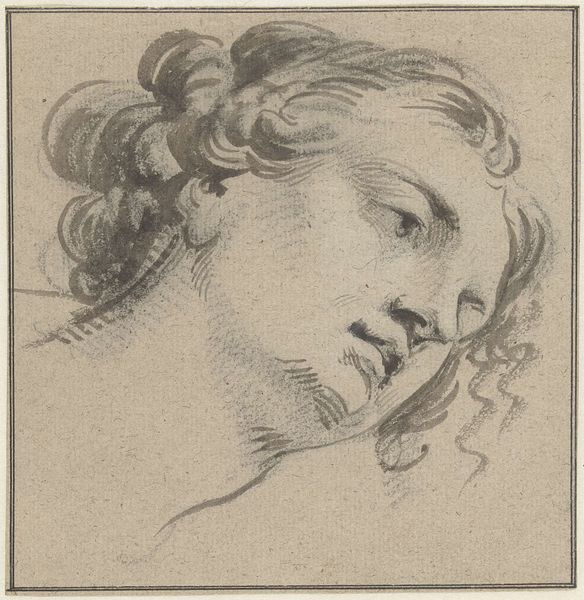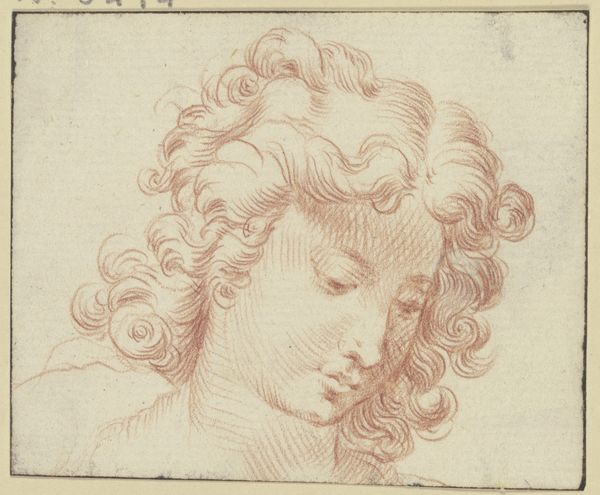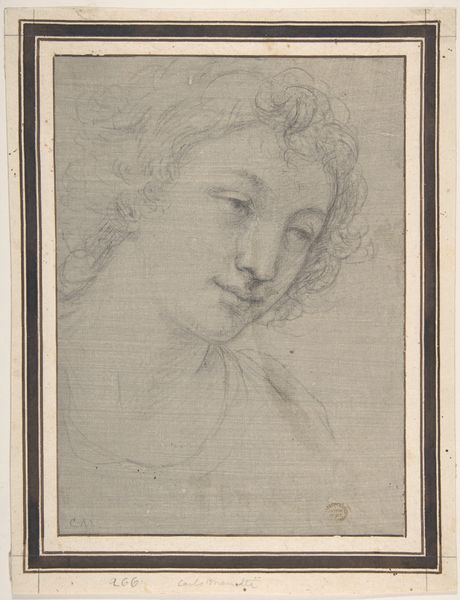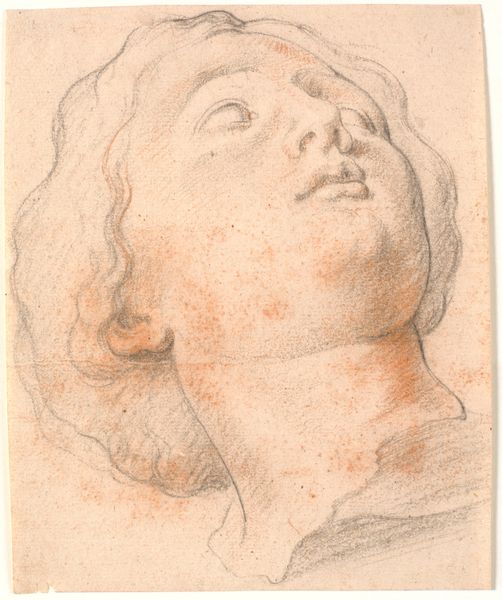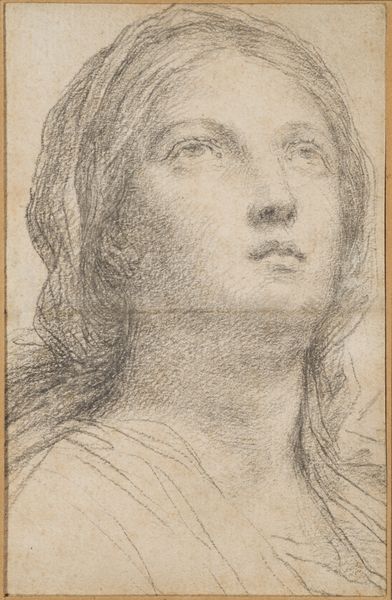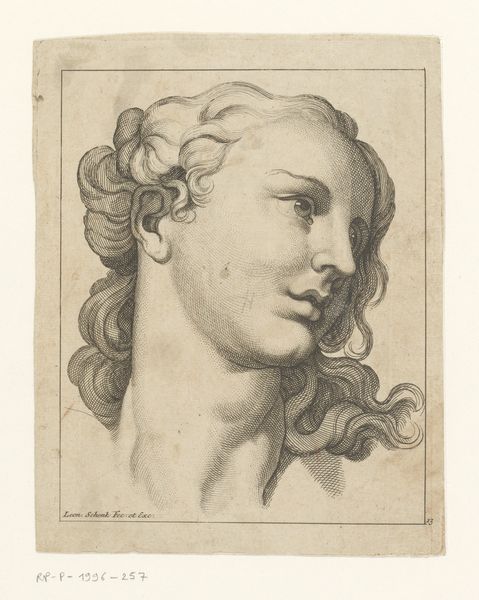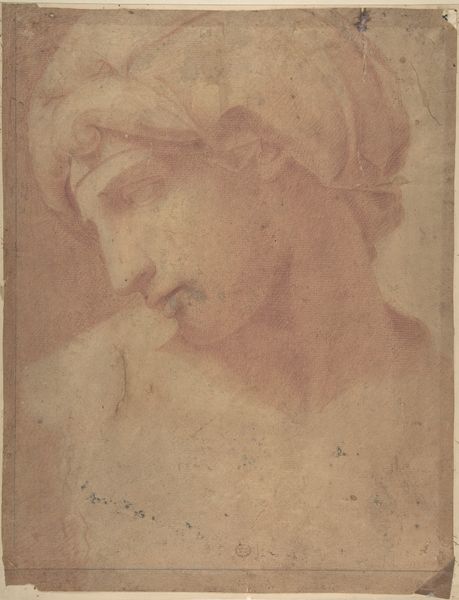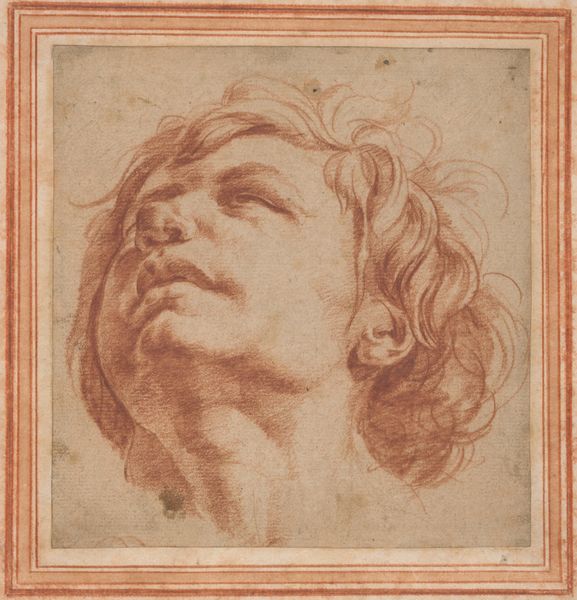
Kopf einer Frau mit Schleier (Vestalin, das Feuer hütend) c. 1726 - 1727
0:00
0:00
drawing, red-chalk, chalk, pastel
#
portrait
#
drawing
#
red-chalk
#
oil painting
#
chalk
#
pastel
#
rococo
Copyright: Public Domain
François Le Moyne created this drawing of a veiled woman's head in France, sometime around the early 18th century. It depicts a vestal virgin, an ancient Roman priestess devoted to Vesta, goddess of the hearth. Vestal Virgins were powerful figures, embodying civic virtue and female chastity. By the 1700s, their image was a common trope through which artists could explore ideas of morality, beauty, and the ideal female form. We see this interest in the classical world expressed through the woman's idealized features and elegant upward gaze. Le Moyne's delicate rendering reminds us of the institutional settings in which artists were trained at this time. He was a leading figure in the Académie Royale, which promoted a classical style. To truly understand this drawing, we need to investigate the history of the academy, the reception of classical imagery in France, and the gendered ideals that shaped artistic production. It's by understanding the social and institutional context that we can decode the meanings embedded in artworks like this.
Comments
stadelmuseum over 2 years ago
⋮
François Lemoyne, who was about the same age as Watteau, pursued a career as a court artist. He produced large decorative wall and ceiling paintings in Versailles and attained the status of “first painter to the king”. For this study of a woman’s head, probably made in preparation for a painting, he used the colour- istic three-chalk technique, and to an extent handled the lines loosely and freely. The artificial, histrionic expression, however, has nothing in common with Watteau’s lifelike drawings.
Join the conversation
Join millions of artists and users on Artera today and experience the ultimate creative platform.
